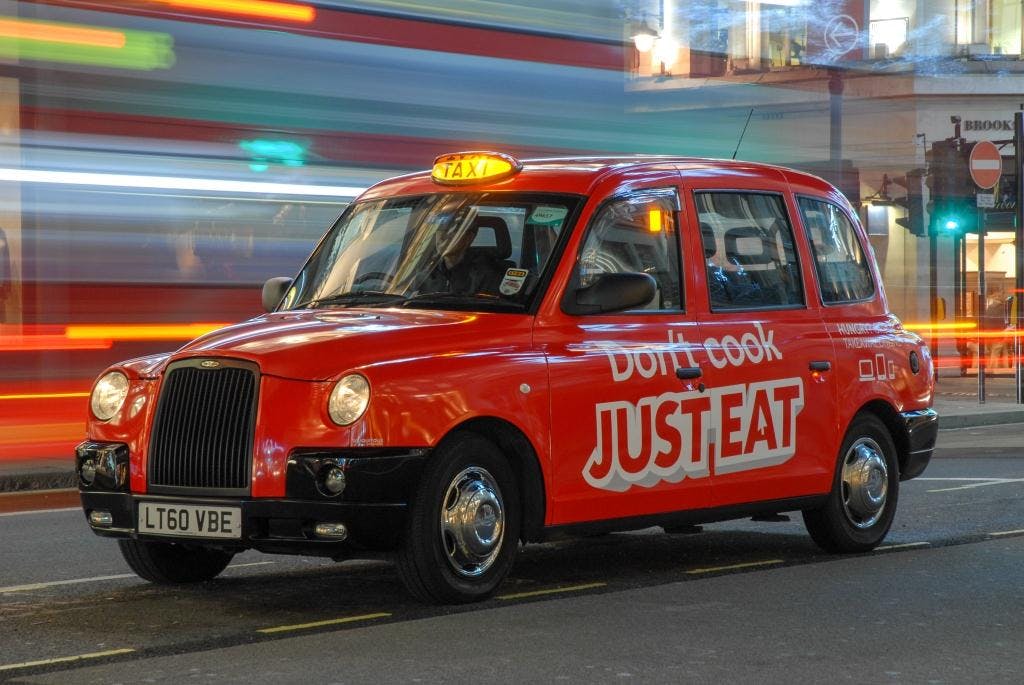2016.05.11

Guest Author

Today’s treat is a guest post from entrepreneur, marketing mastermind, and 500 founder Mat Braddy, founder of ROCK PAMPER SCISSORS and former CMO of Just Eat, a European “unicorn” that went public in April of 2014.
No one thinks of billboards and TV ads when we talk about “growth hacking” (we’re way too cool for that sh*t, right?), but in today’s post Mat shares his takeaways on growth fueled by brand.
Mat’s company was a recent participant in 500 London’s latest Distro Dojo, a growth-focused acceleration and investment program that happens several times a year in locations around the world.
Shameless plug: Mat is currently raising money for Starlight, a UK organization that helps terminally ill children fulfill a special wish. As part of the deal, he’ll be climbing Mount Klimimanjaro — yes, that is correct, the highest peak in Africa. Support him here.
I spent most of the last decade helping to build a European ‘Unicorn’ called Just Eat.
You can tell a European unicorn by its bad teeth, appetite for baguettes and disapproving glare when an American says ‘Soccer….’
For American readers; Just Eat is like Grubhub. But funnier. It’s a takeout delivery service feeding the world in 15 countries and is live in Europe, Canada and Australia. We floated on the London Stock Market in 2014, and a year or so later I left to concentrate on a new startup.
Our new app, Rock Pamper Scissors, is attempting to bring hairdresser bookings into the modern world with a focus on the talent of local stylists. I’ll save you the pitch – but we were very fortunate to be invested in by 500 Startups and invited into the 2016 intake for Distro Dojo.
We had support in streamlining our KPIs, learnt how to take a experimental disciplined approach to growth, and had very valuable exercises in user experience. We left the Dojo even more motivated and confident about our prospects to grow.

The focus on experiments and rapid development of ideas is brilliant. The growth hacker has become the growth scientists, as covered in this great article. However, there is an important ‘art’ to growth that can often get lost in the science – the art of storytelling. This delivers emotional results that are very difficult to metric, yet are often crucial to traction.
The biggest success your company can achieve is becoming the first thing out of someone’s mouth when they think of your category. Need a ride? Uber. Need a book? Amazon. Need a drink? Coke. Need some chinese food delivered? Just Eat. You get the drift. This is such an ambitious big goal it seems silly to even have it as a aim, yet startups come along all the time that manage to do it.
Having built a high growth brand, I believe the recipe should include the following:
- Be authentic
- Challenge old norms
- Be talkable – make customers think
- Deliver an unreasonably good experiences
Let’s explore these ingredients in more detail…
Authenticity
Brands which succeed in cutting through the clutter these days need to hook into emotions with an authentic personality. Before you start working on your brand you have to accept the truth: no-one gives a monkeys about your startup. You are another shrug in a world of ‘meh’.
To overcome this apathy you need to develop an authentic tone of voice from within your team. Why are you doing this project? What gets you all excited? Imagine you are on a protest march as a team – what changes are you demanding to the world? These are not questions you should rely on your clients to answer for you – you are looking for what the passion is that fuels your team and then you have the start of an authentic voice.

Just Eat was founded in Denmark and had a strong ‘viking’ spirit within the company, this translated into a ‘rebellious’ voice in our marketing so when we tried to ban cooking it felt authentic with the personality we had already been building with the public. McDonald’s at the time were pretending to be a salad bar. Not very authentic and greeted with derision by the public.
Challenging brand norms
This should be an easier one for a startup – hopefully your idea is a fresh take on an old problem already. The challenge from a brand perspective is how to articulate it succinctly to potential clients.
My favourite example is one from Swatch. When Swatch launched they were challenging the belief that Swiss engineered watches were expensive luxuries. To communicate their range of great value products they hung a giant 500ft watch on the side of German skyscrapers. On the strap they wrote “Swiss. DM 50.” This wasn’t just a highly talkable marketing play, it was myth busting the ‘normal’ assumptions.

Be talkable – make them think
Millennials, or whatever horrendous label we are giving smartphone addicted consumers this week, are a chatty bunch. A whole generation is coming through that knows how to make YouTube videos, record podcasts and send each other pictures of their naughty bits. Becoming a brand that they talk about is crucial to growth. And to get them to talk you need to make them think.
Rock Pamper Scissors could just advertise “Book a hairdresser in London” on a tube poster. Or we could say “Your hair is the last thing you’ll wear tonight”. A bit sexy, a bit naughty, & we made you look and made you think. And if we get that far we hopefully have made you talk.

Deliver ‘unreasonably’ good experiences
Winning brands in the last few years have delivered fantastic experiences for less cost to the customer than ever before. You used to be happy to wait two weeks for that cheap TV, content that you had a bargain. But now thanks to Amazon you want the cheap TV delivered tonight. Customers are no longer happy to accept trade-offs.
Dating online used to require you complete a tedious registration form, commit to a subscription package, and they were actually selling commitments. Match used to claim to have created more marriages than any other service. It’s all about commitments.
Then along comes Tinder which has no registration form, is free, and is selling flirting. Much more in line with modern customers. It’s not fair, but customers want it all and they do not want to commit to get it or have to subscribe.
Did it work?
Like I said earlier – your job is to try and become the first thought for the category, and one way to KPI that is using brand awareness surveys. When the UK public was asked to name a takeaway ordering app each month throughout the campaign to ban cooking this is what happened…
 Spending far less cash than the big incumbent beast of Domino’s, we were able to take the top spot and head onwards to the glorious land of IPO.
Spending far less cash than the big incumbent beast of Domino’s, we were able to take the top spot and head onwards to the glorious land of IPO.
These ingredients tend to build upon each other – Uber is an app that gets me a ride instantly – I no longer have to hang around on street corners with my hand up. It has challenged traditional licenced taxis in a way they feel is unreasonable, and made people talk about it all over the world. My advice is to start with Simon Sinek’s famous TED talk, work out your purpose internally and from there work out how to communicate it in the most passionate way possible.
Acknowledgements and further reading:
I’m a big fan of the author Adam Morgan and I have shamelessly poached much of the thinking above from his books Eating the Big Fish, and A Beautiful Constraint. Give them a read so he doesn’t shout at me.
About the author

Mat Braddy is an entrepreneur and founder of ROCK PAMPER SCISSORS and was formerly the CMO at JUST EAT. Mat joined JUST EAT in 2009 and set about establishing the company as the leading brand in takeaway around the world, resulting in one of Europe’s biggest tech IPOs for a decade in 2014. In 2012, Mat led the global launch of JUST EAT’s brand campaign to ban home cooking, ‘Don’t Cook, JUST EAT’. Mat is now busily building a new app; Rock Pamper Scissors where the team are striving to build the default hairstyle app for the ‘everything now’ generation. It’s like Uber. But hairy.
